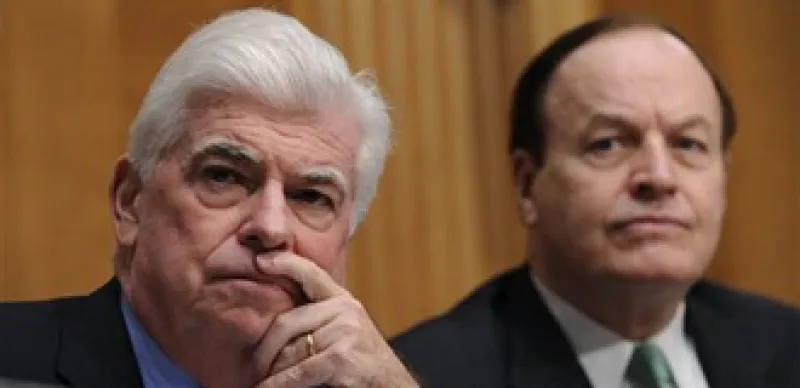
Senate Banking Committee Chairman Sen. Christopher Dodd, D-Conn., left, and the committee's ranking Republican Sen. Richard Shelby, R-Ala., listen during a hearing on modernizing insurance regulations, Tuesday, March 17, 2009, on Capitol Hill in Washington. (AP Photo/Susan Walsh)
Susan Walsh/AP


